Introducing the brand new podcast by Matt and Jadrian - two busy bees who have taken on yet another project! But why? Tune in to the pilot episode to hear them discuss the reasons behind starting a podcast, the efficiency of gift-giving, and the intersection of pop culture and economics. Don't miss out on this exciting new addition to your listening lineup!
In our first episode, we cover the following topics:
Learn more about Matt & Jadrian
Hear our thoughts on why we wanted to start a podcast
Our favorite economic concepts
Is Christmas gift-giving inefficient?
Pop culture economics examples
Watch Episode #1:
Some Show Notes:
Matthew Rousu currently serves as Dean and Professor of Economics in the Sigmund Weis School of Business at Susquehanna University in Selinsgrove, Pennsylvania. Jadrian Wooten is currently a Collegiate Associate Professor of Economics and Director of the Undergraduate Economics Program for Virginia Tech in Blacksburg, Virginia. They’re also two friends who love talking about economics and teaching economics.
Matt’s drink of choice for our first episode was a Peak 15 Cold IPA from Ever Grain Brewing Company in Camp Hill, Pennsylvania. Since Jadrian just moved to Virginia Tech, he opted for a Fightin' Hokies Lager by Hardywood Park Craft Brewery out of Richmond, Virginia. The beer is a unique partnership between Virginia Tech and the Hardywood Park Craft Brewery, with proceeds funding scholarships at Virginia Tech.
During our chat, we talked a lot about our favorite concepts. For Jadrian it’s opportunity costs and Matt loves incentives. If you have a favorite topic, please make sure to share it with us. We love economics so much that we are genuinely curious about what your favorite topics are.
Since we’ve focused on opportunity cost for this episode, and we decided to publish this right before the holiday season, it seemed only natural that we should talk about the debate around gift giving. Economists are notorious for arguing that gift-giving is inefficient. Joel Waldfogel’s 1993 American Economic Review paper titled The Deadweight Loss of Christmas is perhaps the most famous paper on this subject. There are some comments from other economists who find experimental evidence that the losses may be overstated.
Waldfogel’s argument was popular enough that it made its way into an episode of Adam Ruins Everything. In fact, you can even meet Joel Waldfogel in the episode.
There are some debates on how much Americans spend on gift-giving, but the numbers are much bigger than many may realize. The National Retail Federation estimates that holiday spending in 2022 will be between $942.6 billion and $960.4 billion. Gallup has been tracking Americans’ estimated Christmas spending since 2006 and places this year’s amount at around $932 per person. That would come to a total of about $200 billion on gifts. If 10% of that is “lost value” then we’re estimating nearly $20 billion in social losses!
Offhandedly we mentioned the “coffee cup experiment” and felt like we should probably share that research with you. The official paper was published in the Journal of Economic Perspectives, but here’s a nice summary that isn’t in an academic journal.
This Week’s Pop Culture References
Jadrian is the director of the Economics Media Library, which curates 100s of clips that educators and students can use to learn economics. The clips are hosted by Critical Commons, which helps coordinate the copyright clearances so that the clips can be used for educational purposes.
Jadrian’s favorite Christmas-themed pop culture reference comes from the ABC sitcom Blackish. The family Christmas has changed a bit, so the show’s patriarch is forced to give his children their gifts in the closet. They don’t mind the location, but they aren’t happy with the gifts. Junior sums up the inefficiency of gift-giving by noting that his parents took the money he could use anywhere and turned it into money he could only use at one store.
Jadrian’s other favorite pop culture scene about opportunity cost, but not Christmas, comes from the movie Super Troopers. In this scene, a dumb guy pumps an extra gallon of gas into the trash so that he can get a “free” hot dog. It’s a great example of how not to think like an economist!
Matt is the director of Broadway Economics, which catalogs scenes from various Broadway shows that include great examples of economic concepts. He has two brand-new scenes that cover topics that aren’t very common in most pop culture shows. (Coming soon to the website.)
The first new opportunity comes from the song No Friends, which is sung in Almost Famous the Musical. The main idea is about how a reporter has to cover a story without becoming friends with them, and it’s a great example of the principle-agent problem. Check out the song on Spotify:
The other new reference comes from a really old song that highlights option value. It’s not commonly taught in principles, but it focuses on the notion that future options to do something have value today and those values can be traded. That may give you a new way of listening to this great hit from Footloose:



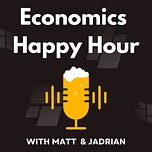


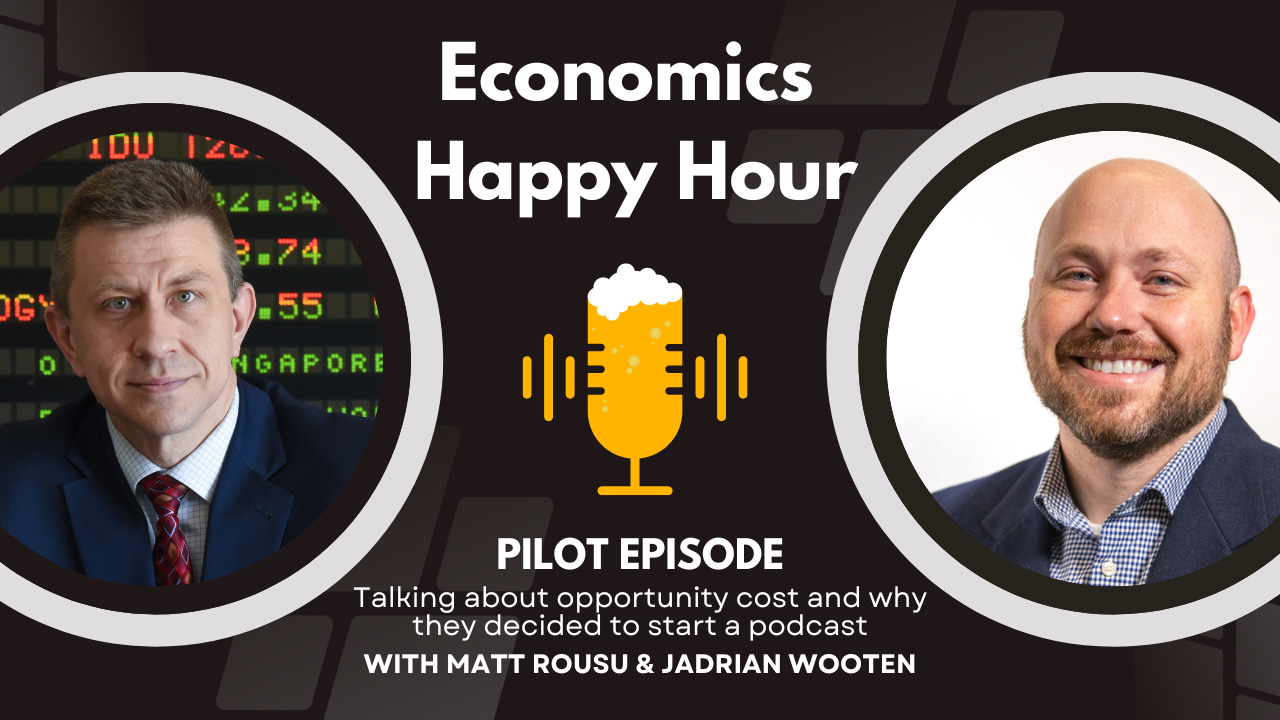


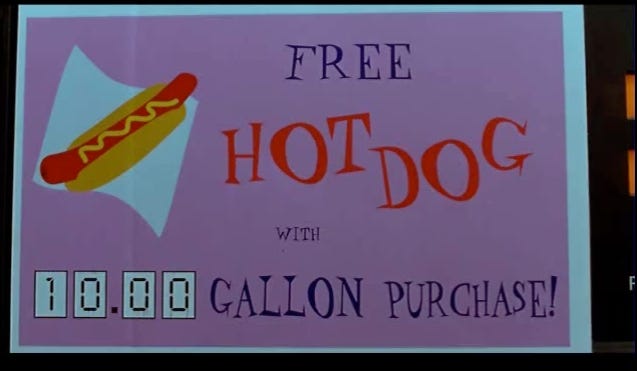




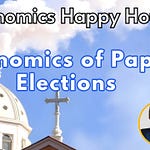


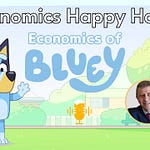
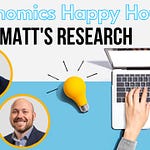

Share this post